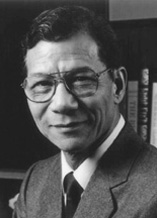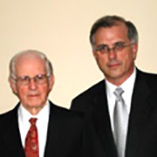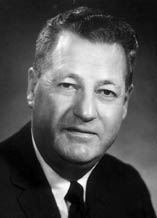Lectureships
The University of Minnesota's Department of Neurosurgery has attracted and/or nurtured renowned leaders since the department's inception in 1947. To ensure that the neurosurgical program continues to flourish, some of these leaders endowed lectureships designed to broaden and enhance research and educational opportunities for the program's residents and faculty members.

Shelley N. Chou Research and Lectureship Fund
The fund established in Shelley N. Chou's name is used to further neurosurgical research, particularly in the areas of movement disorders such as Parkinson's disease and cerebellar dysfunction. The fund is also used to bring a noted neuroscientist to the university to lecture about current advances in neurosurgery and related fields. Dr. Chou attended the University of Utah and in 1949 was awarded his MD. Residency at the University of Minnesota followed and then a tour at the National Institutes of Health working in neurophysiology. In 1960, Dr. Chou returned to the University of Minnesota faculty. Over the following years, he moved up the academic ladder to ultimately be selected as Chairman of Neurosurgery in 1974.

Haines Family Lectureship on Clinical Research in Neurosurgery
In May of 2012, Neurosurgery Department Professor Stephen Haines, MD, and his late father, Gerald Haines, MD, PhD, established the Haines Family Lectureship on Clinical Research in Neurosurgery. The lecture series will bring in prominent neurosurgeons to interact with faculty and residents and stimulate thought about important topics.

Titrud Lectureship in Neurosurgery
Following World War II, Leonard A. Titrud completed an MS in Surgery at the University of Minnesota Medical School, followed by a PhD in Neurosurgery. He was the first student in the neurosurgery graduate program and maintained a close kinship with department head and program founder, William Peyton. In 2003, Dr. Titrud and his wife Geraldine (Jeri) established the Leonard A. and Geraldine A. Titrud Fund in Neurosurgery. It was his vision that faculty in the Department of Neurosurgery would have needed resources for projects focused on neurosurgical research and education.